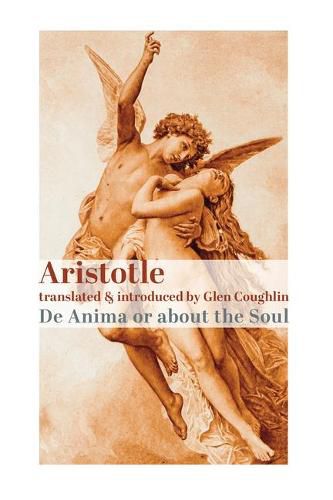Readings Newsletter
Become a Readings Member to make your shopping experience even easier.
Sign in or sign up for free!
You’re not far away from qualifying for FREE standard shipping within Australia
You’ve qualified for FREE standard shipping within Australia
The cart is loading…






The De Anima (On the Soul) is the first and most general of Aristotle’s biological works and as such is the most important work in the study of nature after the Physics of Aristotle. It is presupposed to Aristotle’s Sense and the Sensible, Memory and Reminiscence, and his many other biological works. In this text, Aristotle discusses his predecessors’ views of life, defines the principle of life ( soul ), discusses the principle sorts of living things (plants, animals, and human beings), and analyzes the chief activities of each sort of life. In the case of rational life, he shows that the ability to think implies an immaterial aspect to the human soul.
The De Anima is necessary not only to the study of biology, but also advances the understanding of metaphysics, of ethics and of politics, and even of logic, insofar as logic directs the acts of the human mind.
Like Coughlin’s translation of Aristotle’s Physics (also published by St. Augustine Press), this translation attempts to be literal and concrete. The edition includes the translation, introduction, glossary, index, and explanatory notes.
$9.00 standard shipping within Australia
FREE standard shipping within Australia for orders over $100.00
Express & International shipping calculated at checkout
The De Anima (On the Soul) is the first and most general of Aristotle’s biological works and as such is the most important work in the study of nature after the Physics of Aristotle. It is presupposed to Aristotle’s Sense and the Sensible, Memory and Reminiscence, and his many other biological works. In this text, Aristotle discusses his predecessors’ views of life, defines the principle of life ( soul ), discusses the principle sorts of living things (plants, animals, and human beings), and analyzes the chief activities of each sort of life. In the case of rational life, he shows that the ability to think implies an immaterial aspect to the human soul.
The De Anima is necessary not only to the study of biology, but also advances the understanding of metaphysics, of ethics and of politics, and even of logic, insofar as logic directs the acts of the human mind.
Like Coughlin’s translation of Aristotle’s Physics (also published by St. Augustine Press), this translation attempts to be literal and concrete. The edition includes the translation, introduction, glossary, index, and explanatory notes.